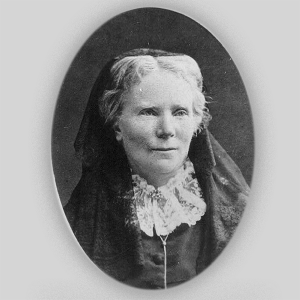
Elizabeth Blackwell was born in Bristol, England, on February 3, 1821. Early in her childhood, her family had moved to New York. Where she had gained exposure to abolitionist and women's right's movements. Later, her family moved to Cincinnati, Ohio. When at the age of 17, she was met with the unexpected death of her father. Due to the circumstances of her family, she was very poor and encouraged to pursue teaching as a career. A change in her life's trajectory happened when she had taken up a teaching job in Kentucky during 1844. Where she had experienced the cruelties and horror of slavery, that motivated her to change the world for the better.
To accomplish her friend's last dying wish of seeing a woman become a doctor, Elizabeth had self-dedicated herself to studying medicine and applying to Geneva Medical College. Her efforts were considered a "joke" to the student-body representatives, however persevering through challenges and discouragement, she became the first woman to graduate from a U.S. medical college. To further continue her studies, she moved to London and Paris. However she had contracted a disease from a patient that made her blind in one eye, leading her to give up her ambition on becoming a surgeon. Therefore, she had no choice left but to come back to New York, where she opened her own private practice and eventually opened a hospital. Offering service to poor women and children who were not able to afford medical/healthcare services, and a space for female doctors to learn and practice medicine. This idea was a huge success on behalf of Elizabeth, as it was a hospital run and operated entirely by women.
When the Civil War took place, Elizabeth seized the opportunity for women to collectively contribute to the Union Army by creating the Women's Central Association of Relief (WCAR). Their main priority was to educate, train, and build the foundation on how to serve as professional nurses in military hospitals. This opportunity would further help expedite the message of women serving in fields of nursing and demonstrate their capabilities.
Unfortunately for Elizabeth, Dorothea Dix's beliefs and interests were more appealing to male organizers, as Dorothea insisted women volunteer rather than be paid for their service during the Civil War. In contrast, Elizabeth demanded equal treatment or at least some form of compensation, which didn't align with the values of male organizers, who wanted to preserve traditional gender roles. Though met with a defeat in her attempts to support the Civil War, she didn't give up.
She retracted back even stronger, along with supporting war efforts, Elizabeth opened the Women's Medical College at the New York Infirmary in 1867, a place that provided women education in medicine without constant judgment, and free of resistance and ridicule from men. A thriving ground for women to break into fields of medicine/nursing. Leading up to her death in 1910, she continued to advocate for change and reform in women's professional career's.